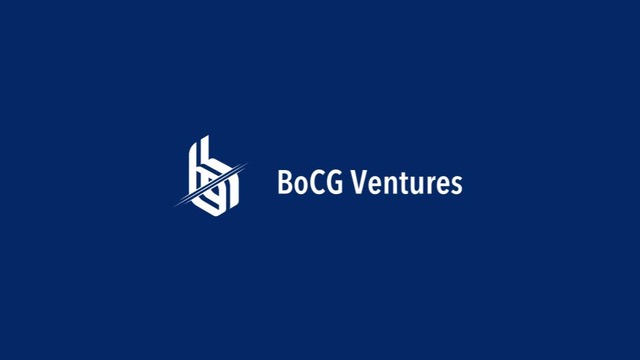What Is an Executive Leadership Coach and How Can They Help?

What Is an Executive Leadership Coach and How Can They Help?
What is an executive coach?
An executive leadership coach is a professional guide who works one-on-one with senior leaders to help them grow. Their coaching is highly personalized, shaped by the executive’s unique goals and workplace challenges. The focus is on deepening self-awareness, refining decisions, building emotional intelligence, and increasing influence within the organization.
Leadership development is essential for any company aiming to thrive. Strong leaders drive results—through better ideas, better teams, and stronger engagement. When companies invest in coaching, they often see measurable gains: improved productivity, clearer communication, stronger retention, and a meaningful return on investment.
Executive coaching helps by:
- Elevating leadership impact.
- Improving team performance and strategic thinking.
- Creating a healthier, more stable work culture.
- Supporting long-term business success.
This isn’t tied to any one field. From private equity to healthcare, and from CEOs to Chief People Officers, coaching adapts to each role. It might help a CEO align talent and pay strategies, or guide a CPO through a complex merger. In every case, it’s about helping leaders move with confidence and clarity.
In essence, an executive leadership coach plays a pivotal role in shaping effective leaders who contribute substantially to organizational success.
This coaching is not limited to a specific industry or role; it can be tailored to various sectors such as private equity, where executive coaching helps professionals sharpen their leadership and strengthen their decision-making. It's also beneficial for roles like the Chief Executive Officer, providing support in areas such as compensation strategies, talent retention, and acquisition which are critical for thriving in competitive markets.
Moreover, Chief People Officers also greatly benefit from executive coaching as it helps them build resilient cultures and align people strategies with business goals during critical transitions like restructuring or mergers.
The Coach’s Role
At its core, coaching is a relationship—personal, confidential, and practical. You’re not handed a checklist. You’re given a mirror, a map, and a partner. The coach helps you work through patterns, sharpen your thinking, and develop habits that match your values with results.
What this looks like:
- Honest, private conversations about real problems.
- Fast, targeted feedback based on your actual decisions.
- A structure of accountability—someone to push you and keep you on track.
- Faster development, compared to more generic programs.
The coach serves as sounding board, challenger, and confidant—building trust while pushing growth.
This coaching is not limited to a specific industry or role; it can be tailored to various sectors such as private equity, where executive coaching helps professionals sharpen their leadership and strengthen their decision-making. It's also beneficial for roles like the Chief Executive Officer, providing support in areas such as compensation strategies, talent retention, and acquisition which are critical for thriving in competitive markets.
Moreover, Chief People Officers also greatly benefit from executive coaching as it helps them build resilient cultures and align people strategies with business goals during critical transitions like restructuring or mergers.
Key Skills Developed Through Executive Leadership Coaching
Through executive coaching, leaders develop the skills that matter most:
- Strategic thinking: See beyond the day-to-day, make sharper decisions, and anticipate shifts.
- Emotional intelligence: Stay grounded under pressure, manage relationships, and communicate with empathy.
- Team leadership: Build trust, align your team, and handle conflict productively.
These skills aren’t taught in a vacuum. Coaches use real-world projects, feedback loops, and exercises that help you apply what you learn right away.
Strong leadership starts with the ability to see the bigger picture and make informed decisions that align with organizational goals. Strategic thinking is a core skill developed during executive coaching, such as the Executive Team Leadership Coaching offered by CPO PLAYBOOK. You learn to analyze market trends, anticipate challenges, and prioritize initiatives that move your company forward. For example, an executive coach might guide you through frameworks for scenario planning or help you identify blind spots in decision-making processes.
Another essential focus is emotional intelligence. This involves understanding your own emotions, recognizing how they affect your interactions, and managing responses in high-pressure situations. Coaches use targeted exercises—such as reflective journaling or feedback analysis—to help you build self-awareness, empathy, and stronger communication skills. Leaders who master emotional intelligence inspire trust and create positive work environments.
Team cohesiveness often distinguishes successful leaders from average ones. Through executive coaching, you gain tools to foster collaboration, resolve conflicts constructively, and maintain team motivation even during periods of change. Techniques such as facilitated team assessments or role-playing exercises enable you to bridge communication gaps and reinforce shared objectives.
At CPO PLAYBOOK, we specialize in this hands-on approach, helping leaders in sectors like finance, technology, and life sciences create lasting change.
A Structured, Adaptive Process
What makes coaching unique is its rhythm. Each engagement follows a clear process:
- Set goals based on your role, your company, and your aspirations.
- Track progress with regular reviews to adjust and refocus.
- Apply skills through practical assignments and live challenges.
A coach doesn’t just give advice—they help build a system for continuous improvement.
This is especially valuable at the board level. Board members often face high-stakes decisions and need to align diverse views. Coaching can strengthen communication, decision-making, and boardroom leadership at a time when clarity matters most.
Progress Reviews for Honest Assessment
Progress reviews are built into the framework. Regular check-ins provide an honest assessment of achievements and setbacks. This objective feedback loop keeps development on track and ensures that efforts are aligned with both individual growth and organizational needs.
Skill Development Assignments for Practical Application
Skill development assignments play a critical role in translating insights into action. Coaches design exercises that push leaders beyond their comfort zones, such as leading a cross-functional project or facilitating a feedback session. Assignments are practical, relevant, and immediately applicable to real-world scenarios.
An executive leadership coach doesn’t just provide advice—they create an environment for continuous improvement through accountability and support.
The Executive Coaching Approach
This approach turns coaching into a dynamic partnership focused on real results, with ongoing support that adapts as leaders grow.
- Establish clear goals: Define what success looks like
- Monitor progress: Schedule regular reviews and adjust strategies as needed
- Apply new skills: Complete custom assignments that reinforce learning
One area where this coaching can be particularly transformative is within the Board of Directors. The Board plays a vital role in any organization, making big decisions, setting long-term goals, and ensuring the company stays on track. Leveraging executive coaching can help board members achieve their goals more effectively.

A leader in a meeting that captures growth and clarity, showing what is executive coaching.
The Structure and Duration of Executive Coaching: What to Expect
The coaching relationship duration typically spans several months, often ranging from six months to a year. This extended timeframe allows for deep, sustained development and meaningful transformation in leadership capabilities, whether it's for a Chief Financial Officer or any other executive role.
Session Structure
- Goal Setting: Initial sessions focus on identifying specific goals aligned with the leader’s personal and professional aspirations. These goals provide a clear direction for the coaching journey, utilizing effective goal-setting techniques.
- Progress Tracking: Regular reviews ensure that progress is continuously monitored, allowing adjustments to be made as needed. This keeps the leader on track toward achieving their set objectives, employing effective strategies for tracking progress.
Support Between Sessions
Effective coaching doesn’t stop when the meeting ends. Coaches often stay in touch through:
- Feedback: Timely observations help leaders reflect and evolve.
- Assignments: Small tasks put lessons into practice in real time.
- Check-ins: Quick touch-points keep the momentum going and address roadblocks early.
This rhythm builds a reliable and flexible coaching environment where leaders are consistently supported.
At CPO PLAYBOOK, coaching is shaped by each leader’s world—whether in private equity, tech, healthcare, or finance. We work with CEOs and their teams, drawing from tools like Korn Ferry 360. We also offer focused coaching for women leaders, supporting their success while improving how talent is managed across organizations.
Choosing the Right Coach: What to Look For
A strong coach brings both experience and credentials. You want someone who’s been in the trenches of leadership and knows what it takes to navigate complexity.
Checklist for Evaluation:
- Have they held leadership roles themselves?
- Are they certified by respected groups like the ICF or the Center for Executive Coaching?
This mix of experience and professional backing ensures you’re working with someone who’s not only credible but committed.
The Value of Executive Coaching
Coaching brings measurable benefits that go beyond the individual. Here’s how:
- Productivity
- Leaders become better at setting priorities, making decisions, and managing teams—pushing the whole organization forward.
- Retention
- When employees see leadership improving, it signals that development matters. It boosts morale and helps keep people around.
- ROI
- Companies often see clear returns: stronger performance, higher engagement, and a lift in innovation.
Studies consistently show that organizations see a strong return on investment from executive coaching programs. Improved leadership effectiveness may result in better financial performance, increased engagement scores, and higher innovation rates. For many companies, the answer to "what is an executive leadership coach" ties directly to their bottom line—coaches are a catalyst for sustainable growth.
This strategic investment helps organizations cultivate leaders capable of navigating complex challenges and inspiring high-performing teams. One area where this is particularly impactful is in the role of a Chief X Officer (CXO). With leadership coaching, CXOs can transform their approach to overseeing both customer and employee experiences, ensuring that every interaction aligns with the company’s strategic vision while enhancing satisfaction and engagement on both sides.
Conclusion
Executive coaching isn’t just support—it’s a catalyst. It unlocks self-awareness, drives accountability, and strengthens entire teams. For any leader aiming to grow and leave a meaningful impact, coaching is a smart, strategic investment.


.avif)















